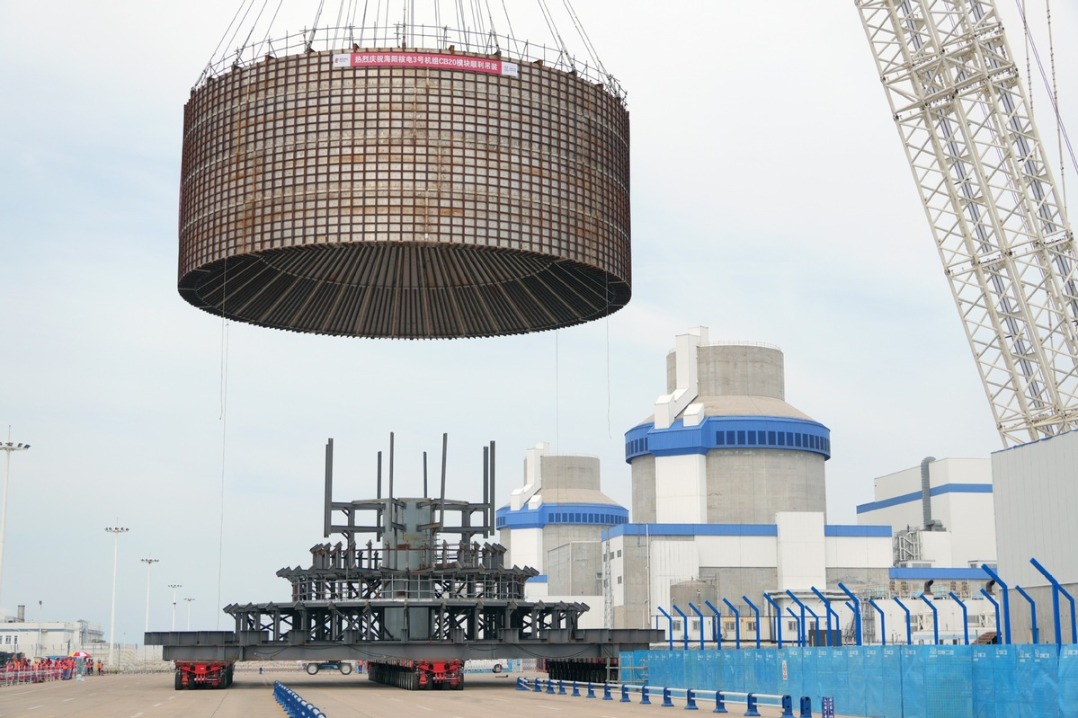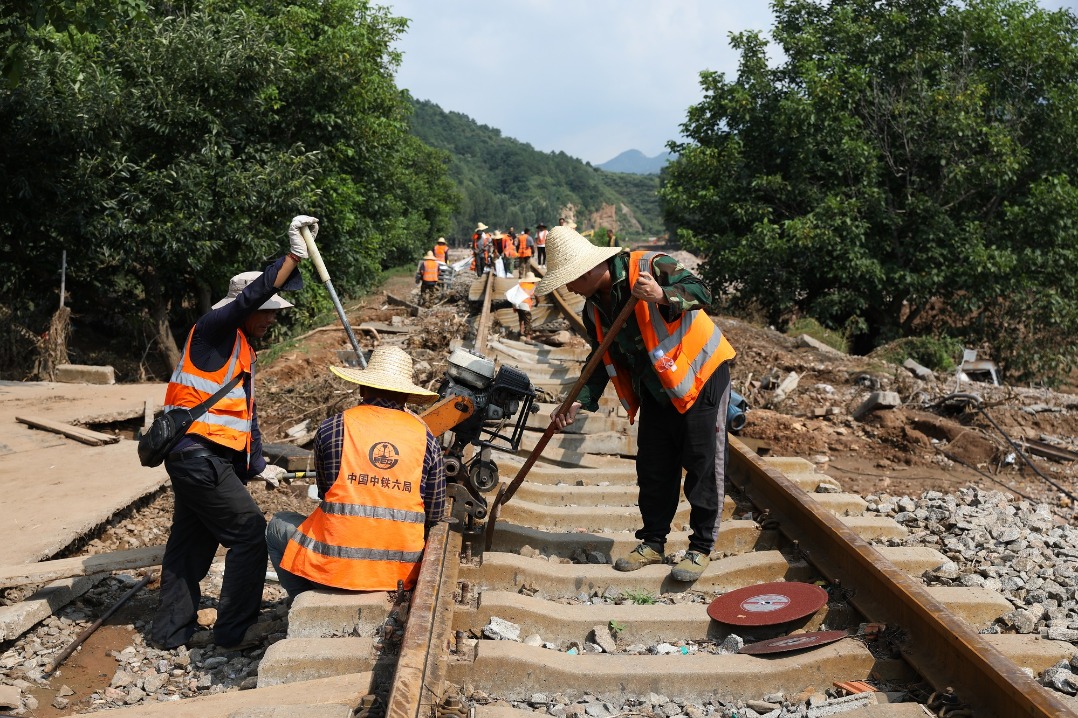Policy focus to be on stable growth, lower risks in 2020
GDP target for next year likely to be around 6% in nation, say economists

Macroeconomic policies in China are expected to strike a balance between growth stability and risk prevention next year, with the overall GDP growth during the period expected to be around 6 percent, economists said on Wednesday.
The comments came ahead of the much-anticipated Central Economic Working Conference, a high-level meeting that will set the policy tone for next year, later this month and discussions on whether the GDP target should remain above 6 percent or be allowed to slip further.
Unlike a decade ago, more efforts are certainly needed to sustain a growth rate of 6 percent and above, including an expansionary fiscal policy and a higher tolerance of debt growth as investment efficiency has weakened, said the economists.
The 2020 GDP growth rate target may be set at "around 6 percent", compared with the wording of "from 6 percent to 6.5 percent" in 2019, said Lu Ting, chief economist in China for Nomura Securities.
To support such a goal, the fiscal deficit ratio-the budgeted deficit to the total GDP ratio, should be raised to 3 percent next year from the existing 2.8 percent, while the monetary policy will have even less room for further easing, said Lu.
More tax and fee reductions are likely next year as these measures are an important ingredient of the fiscal policy. But the targeted amount will be set lower than that for 2019, given the fiscal spending difficulties faced by some local governments, experts close to the finance ministry told China Daily. The total tax and fee cuts will exceed 2.3 trillion yuan ($326 billion) this year, Finance Minister Liu Kun said earlier.
Lu from Nomura said it is not necessary for the government to maintain a GDP rate higher than 6 percent, and the viewpoint is different from that of Yu Yongding, a senior economist with the Chinese Academy of Social Sciences. Yu said in a recent article that the government's top priority should be to arrest the decline in GDP growth, as falling growth will worsen the financial stability indicators.
Uncertainties over China-US trade talks and external headwinds will push the policymakers to focus more on maintaining stable growth, unlike the last two years when risk prevention was the priority, said Mao Zhenhua, founder and president of China Chengxin International Credit Rating Co Ltd.
But maintaining a higher growth rate would have lateral side-effects like a fast expansion of credit, the economists said. They said that household debt has accelerated during the first three quarters of this year.
"China has demonstrated a strong willingness toward de-risking," said Nicholas Zhu, vice-president and senior credit officer at Moody's Investors Service. Zhu said global credit ratings agencies are keeping a close watch to see if financial leverage increases due to the stimulus measures for curbing downside pressures on the economy.
Yi Gang, the central bank governor, said in a recent article that China will maintain a prudent monetary policy, although the world's economic downturn will likely stay for a long time.
In the article, Yi said that economic development should not be judged only on the basis of GDP growth. He said the nation needs to be wary of a contraction in credit in some areas as downward pressure increases.
The country is still in the process of shifting to a consumption-led economy. Consumption contributed over 60 percent of China's GDP growth in the first three quarters of this year. Besides, the services industry is expected to contribute more to growth, according to the National Bureau of Statistics.
As a result, the services industry will absorb massive labor force, said Zhu from Moody's. "Despite China's economic growth slowdown, very few people have actually lost their jobs. The country is not under high stress of unemployment because a large number of job opportunities are transferring from the manufacturing sector to the services industry amid economic transition in China."
Today's Top News
- Pakistani minister hails high-tech ties with China
- China-US trade ties crucial for global growth
- Prospering Xizang sees surge in overseas visitors
- Central govt has final say on reincarnation of Dalai Lama
- Manila fueling tensions with its solicitations: China Daily editorial
- Bundling trade with other issues coercive approach demolishing rules-based order: China Daily editorial






























